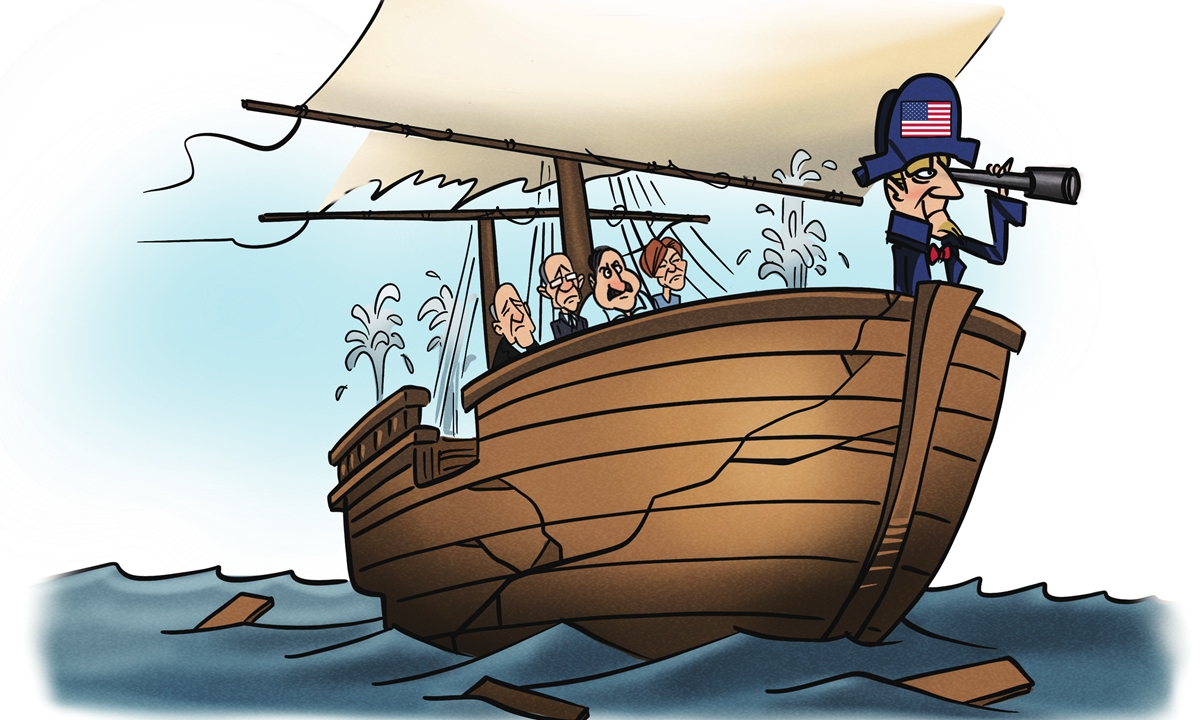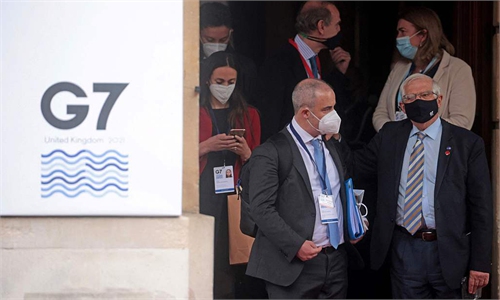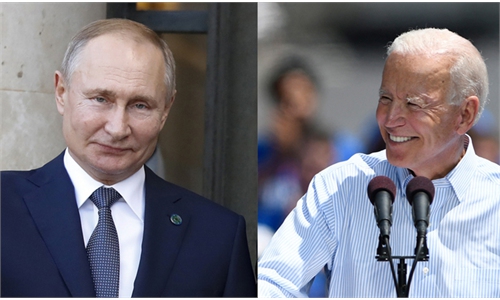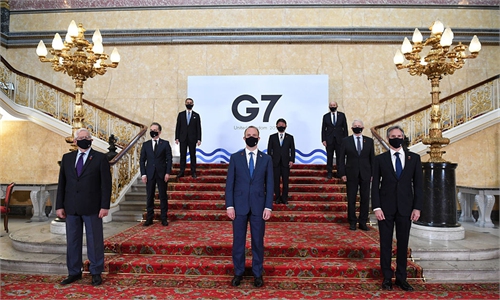Biden to gain little from 'geopolitical feast' in Europe: Global Times editorial

Illustration: Liu Rui/GT
After Biden assumed office, he has called for allies to unite to cope with challenges in a high-profile manner and done his best to appease European countries. It has worked to some extent. The Biden administration has used "a battle between the utility of democracies and autocracies" to define the world, which successfully incited some radical forces in the West. The three summits with allies during Biden's European tour will demonstrate these results and create a momentum to indicate that Washington is capable of bringing its allies together.
However, all this is nothing but a bluff, because the "unity" Washington is fostering cannot address the real problem of the US and the West. That is, major Western countries including the US are seeing constantly declining competitiveness. When the G7 was established, its GDP accounted for 80 percent of the global GDP, but has dropped to 40 percent. This is the real concern for the US and Europe.
The US and Europe seek different solutions. What the US feels most anxious from China's economic rise is how to maintain its hegemony. It aims to weaken China's national strength which has constantly improved through strategic containment, and demands European countries to focus on their "common interests" and contain China as well. European big powers, however, are aware that strengthening economic cooperation with China helps them revive their competitiveness. They don't want political conflicts with China to extend to trade and economy.
China's production capability, market potential and status of the top trader in the world shows that the US is unable to choke the continuous growth of the Chinese economy. If the US is to compete with China strategically, the fundamental way is to greatly revive its own economy. Although the US Senate passed the Innovation and Competition Act of 2021 with contents that still absurdly target China, it at least focuses on domestic issues.
But the US is a free market economy. Now it wants to "plan its economy" like a drowning man trying to catch at any straw and the effects will remain in doubt.
According to media reports, Washington will bring up Taiwan in the G7 joint statement. It will make the G7 summit talk about Xinjiang and Hong Kong affairs and show its stance toward Xinjiang's "forced labor" issue. Washington is also poised to raise China in the NATO 2030 initiative.
All these plans look "strategic," but they cannot solve US core anxiety, nor lock the loyalty of Europe. China will continue to rise, and the US advantage over China will further shrink.
The US' grand containment strategy against China must be supported by huge dividends and its renewed high economic growth to build the confidence of its allies. Without these two factors, the grander the strategy, the more flashy it will be, and the more likely it will be carried out with little effort by its allies, leaving things unsettled.
Some of the political elites in Washington, who are more like "frogs in the well," learned nothing but experience of winning the Cold War previously, refuse to accept some of the fundamental changes of the era of globalization. Far from being in a confrontation with China, they are in a confrontation with the times and with the common interests of the human race, including the American people. They make themselves exhausted and get half the results with double the effort.
The majority of US' allies are benefiting from China's cooperation far more than their strategic fears about China's rise, and their interests determine that they will keep a distance from the US' comprehensive containment strategy against China. Washington will never be able to transform its hegemonic ambitions into the realization that most of its allies will endure the losses to fight with the US.



